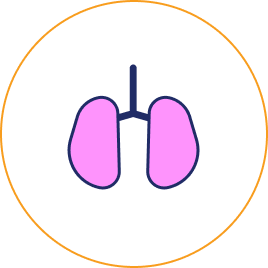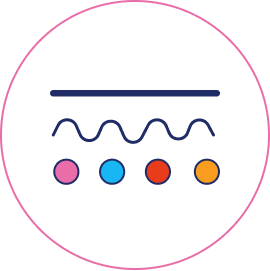Breastfeeding and Cow's Milk
Protein Allergy
The gold standard
for infants
Mothers of infants with CMPA should be supported to continue breastfeeding. Breastmilk contains all the essential nutrients infants need in their first 6 months of life and should thereafter be complemented with a cow’s milk protein-free diet. In rare cases where infants react to cow’s milk transmitted through breastmilk, mothers might have to eliminate cow’s milk proteins from their diet.
A clear improvement of CMPA symptoms is usually noticeable after the exclusion of cow’s milk protein in 2 to 4 weeks, and sometimes even earlier. It may be necessary for the mother to take daily calcium and vitamin D supplements while on a cow’s milk protein-free diet.1-3
To confirm or exclude the diagnosis, a controlled oral food challenge under medical supervision may be required2 Learn more about food challenge here.
Breast milk nutures
infants' immune
systems
Infants with CMPA are at an increased risk of infections and future allergies.4-6 As breastfeeding has been shown to reduce the incidence of infections and future allergies, this provides yet another important reason to support mothers to breastfeed.7-11
These outcomes are attributed to diverse bioactive components present in breastmilk, including human milk oligosaccharides (HMO).12 HMO are the third most abundant solid component of breastmilk, and play an important immune-nurturing role.12
While there are over 200 of these structurally complex carbohydrates,12 two of them, 2’ Fucosyllactose (2’FL) and Lacto-N-(neo)tetraose (LNnT), account for more than 30% of HMO in breastmilk.13
Several clinical studies reported the protective effect of breastfeeding.
For infants, including a reduced incidence of:

Gastroenteritis and diarrhea

Respiratory tract infections

Atopic manifestations
